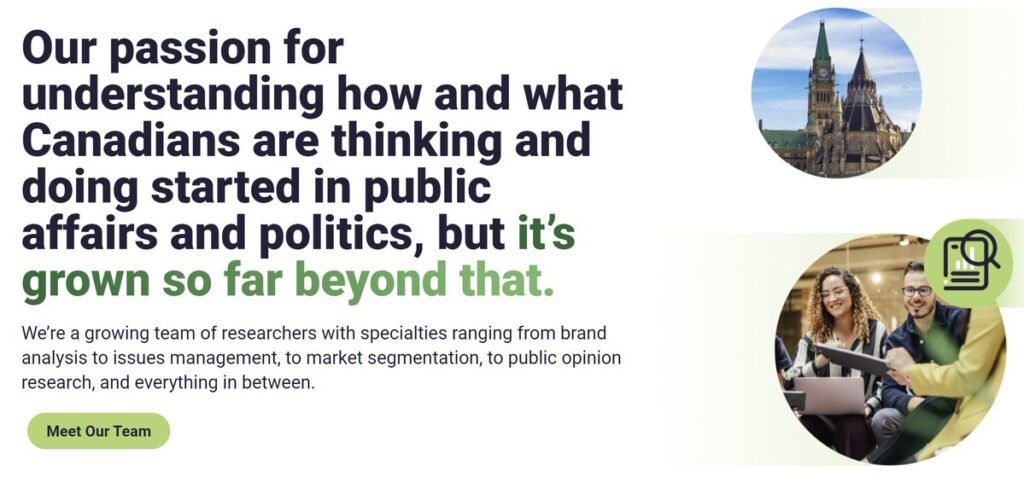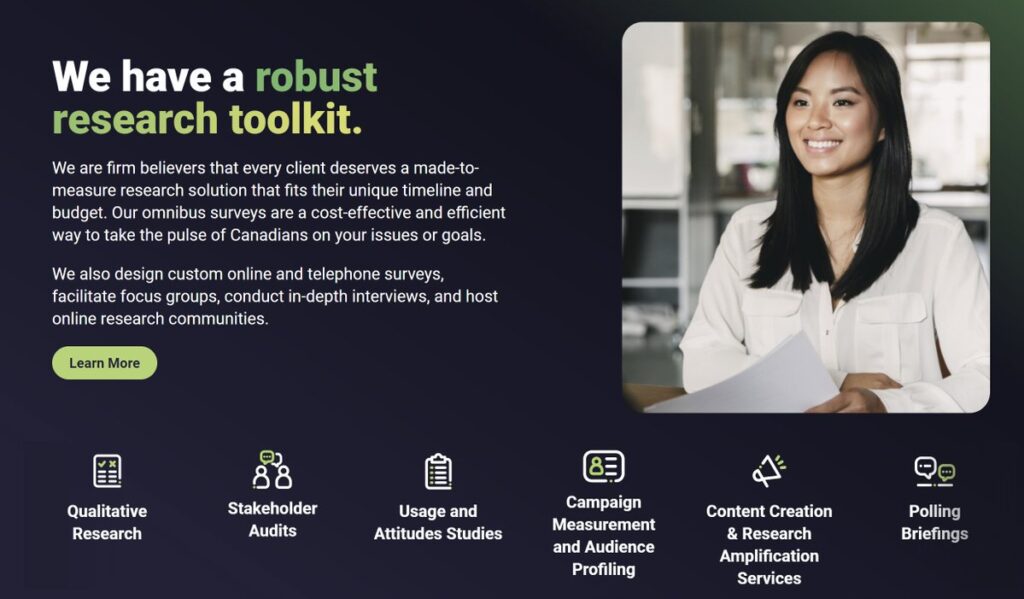Are We Ready? Canadians Voice Real Fears About AI and Work
In our second deep dive into Canadian attitudes toward artificial intelligence, we turn our attention to AI’s growing role in the workplace. From July 10 to 15, 2025, Abacus Data surveyed 1,915 Canadian adults to understand how they perceive the impact of AI on their jobs and careers. As AI adoption accelerates across the country, Canadians are experiencing a mix of anxiety, curiosity, and cautious optimism. The findings reveal a workforce deeply divided – not just over whether AI will bring more opportunity or risk, but also over how prepared they feel for the changes on the horizon.
AI Anxiety Runs High
Nearly half of employed Canadians (47%) say they’re worried that AI and automation could soon force them to change their job or career. But this concern isn’t evenly spread – it’s most intense among young adults, with 55% of those aged 18-29 expressing anxiety about needing to shift careers within the next five years. People who are already familiar with AI are also more likely to worry (56%), perhaps reflecting a deeper understanding of how quickly workplace technology is evolving.



Most Expect Job Losses, and Many Don’t Feel Ready
The spectre of job loss is widespread – seven in ten employed Canadians believe that AI will make some jobs in their industry obsolete. And the feeling of being prepared to adapt to this new reality is split right down the middle: 50% say they feel ready, while the other half feel unprepared.


Readiness also follows demographic lines. Young adults (63% of those 18-29, 58% of 30-44) and men (54%) are more likely to say they feel equipped to handle the change, while older Canadians (68% of those 60+) and women (55%) are less confident. The biggest gap is between those who are familiar with AI (68% feel prepared) and those who aren’t – 80% of that group say they’re not ready for what’s coming. These findings underscore a real divide in how equipped Canadians feel to face the coming transformation.

Is AI an Opportunity or a Threat? Canadians are Split Down the Middle
Asked whether AI will bring more opportunities than risks to their workplace in the next five years, Canadians are perfectly divided: 49% see the upside, while 51% remain unconvinced. But optimism is more common among men (53%), Canadians aged 30-44 (56%), and those familiar with AI (61%). In contrast, women (58%), older Canadians (61% of 60+), and those who lack AI familiarity (71%) are more likely to view AI as a net risk. This deep split highlights the ongoing debate over whether AI will ultimately help or harm the Canadian workforce.


AI Training Is Still the Exception, Not the Rule
Despite all the anticipation – and anxiety – around AI, only about one in three employed Canadians (36%) report that their employer has encouraged, required, or provided any training to help them use AI tools at work. The vast majority are left to figure things out on their own, or not at all. For most workers, structured support to adapt to AI remains out of reach, potentially widening the skills gap in the years ahead.

A Clear Expectation: More Jobs Lost Than Created
When Canadians consider the bigger picture, pessimism outweighs optimism: 62% believe that AI will eliminate more jobs than it creates, with just 11% believing the opposite. There is a widespread expectation that AI’s impact on the labour market will be more about disruption and loss than new opportunities.

THE UPSHOT
The rise of AI in Canada is more than just a technological shift – it’s a moment of change for our workforce, our economy, and how secure Canadians feel about the future. Many are already feeling anxious about what AI could mean for their jobs and livelihoods, and those concerns are shaping conversations about work, learning, and trust in our institutions.
If these worries are left unaddressed, there’s a risk that progress could slow and divisions could widen. But there is also a real opportunity for leaders – across government, business, and the tech sector – to step up and guide Canadians through this transition. As AI continues to accelerate, people will look for answers and reassurance about how they will be supported and protected.
With open communication, investment in accessible training, and a commitment to inclusion, Canada can help ensure that everyone is prepared to adapt at their own pace and on their own terms. By working together and focusing on people, not just technology, we can help Canadians feel more confident about the future.
AI’s potential will be realized if we bring everyone along. The choices made now will help shape not only the future of work, but also our sense of community and resilience in a rapidly changing world.
METHODOLOGY
The survey was conducted with 1,915 Canadian adults from July 10 to 15, 2025. A random sample of panelists were invited to complete the survey from a set of partner panels based on the Lucid exchange platform. These partners are typically double opt-in survey panels, blended to manage out potential skews in the data from a single source.
The margin of error for a comparable probability-based random sample of the same size is +/- 2.24%, 19 times out of 20.
The data were weighted according to census data to ensure that the sample matched Canada’s population according to age, gender, educational attainment, and region.
This survey was paid for by Abacus Data.
Abacus Data follows the CRIC Public Opinion Research Standards and Disclosure Requirements that can be found here: https://canadianresearchinsightscouncil.ca/standards/

ABOUT ABACUS DATA
We are Canada’s most sought-after, influential, and impactful polling and market research firm. We are hired by many of North America’s most respected and influential brands and organizations.
We use the latest technology, sound science, and deep experience to generate top-flight research-based advice to our clients. We offer global research capacity with a strong focus on customer service, attention to detail, and exceptional value.
And we are growing throughout all parts of Canada and the United States and have capacity for new clients who want high quality research insights with enlightened hospitality.
Our record speaks for itself: we were one of the most accurate pollsters conducting research during the 2025 Canadian election following up on our outstanding record in the 2021, 2019, 2015, and 2011 federal elections.
Contact us with any questions.
Find out more about how we can help your organization by downloading our corporate profile and service offering.
